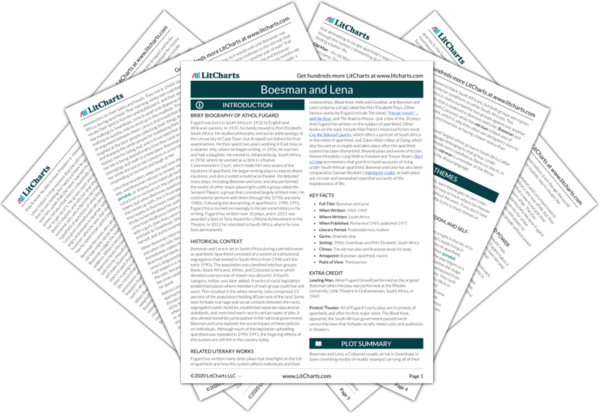Later, Fugard reveals that Boesman’s laughter is due to the fact that Boesman actually felt free once the bulldozer cleared the
pondoks. Yet, both here and when Boesman makes this confession, it demonstrates that apartheid’s policies and the segregated status quo has been completely normalized for them. Instead of blaming white people for their circumstance, Boesman becomes complicit in the system by thanking them.
